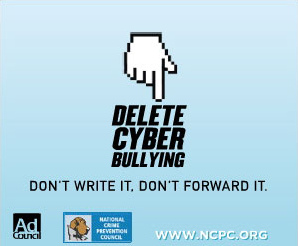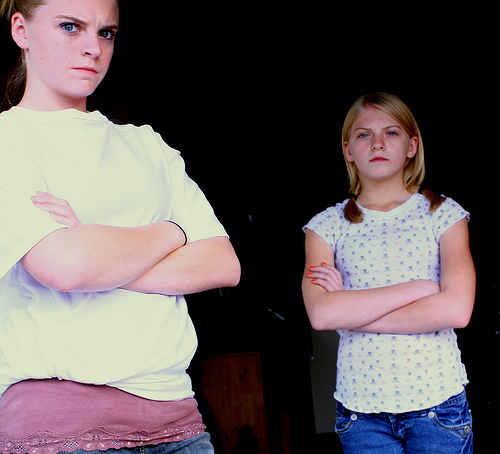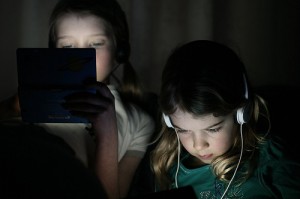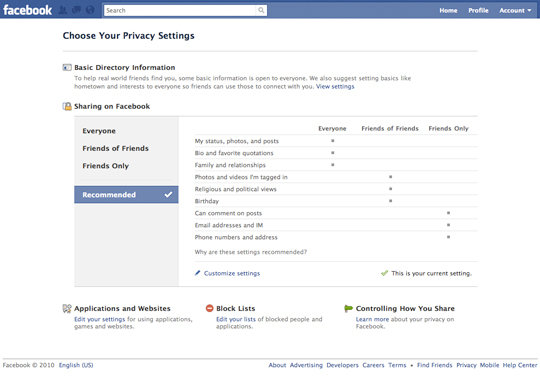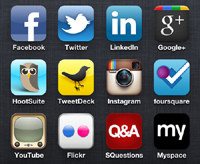As Governor Andrew Cuomo and the state of New York join the ranks of the few states that have passed cyberbullying laws, it’s important to understand that simply passing a law is not going to ensure your kids’ online safety. It takes an individual effort on the part of parents and kids to end online harassment, and it starts with honest, open communication.
My Child Has Been Cyberbullying: What Do I Do Now?
Your heart skipped a beat when you first found out that your child has been cyberbullying others.
Maybe you received a phone call from the principal or another parent, or maybe you stumbled across some bullying messages stored on your child's phone or computer. However you found out, the news probably came as quite a shock.
What to Do When Your Child Is Cyberbullying Victim
If your child has being harassed by a cyberbully, would you know what to do? Responding to cyberbullying can be more complicated than you think, and the right way to react depends on exactly what's going on.
Finding that someone is bullying your child makes you want to act immediately, but keep your cool and ask questions first. Most victims of cyberbullying don't tell their parents because they think doing so will only make it worse. So before you start making phone calls to the bully's parents, the principal, or the police, find out:
Keeping Your Kids Safe and Protecting Them on Formspring
Has Formspring become a topic of daily conversation in your house? Or, more likely, you may have heard your teen saying “Formspring” and had no clue what they were talking about.
The idea of Formspring is simple enough. It's a fun, social forum where people ask and answer questions. You can ask one person, a group, or everyone on Formspring.
Questions you might see can be silly (“How much wood could a woodchuck chuck?”) or thought-provoking (“Do you think you can love someone who is fundamentally different from you?”) Teens also use Formspring to take the temperature of what's normal with their peers (“Do you get along with your parents?”)
Facebook Targets Kids Under the Age of 13: Facebook For Kids?
 Is Facebook creating a melting pot for online predators and cyberbullying by allowing kids under the age of 13 to join? Or can parents use the opportunity to educate, engage and protect their kids through monitored use?
Is Facebook creating a melting pot for online predators and cyberbullying by allowing kids under the age of 13 to join? Or can parents use the opportunity to educate, engage and protect their kids through monitored use?
You may have noticed that Facebook has been in the news quite a bit recently. There was the largest IPO in US history, there was a Mark Zuckerberg wedding, a lot of noise surrounding the IPO and insider information, falling stock prices, a new Facebook Photo app, and now most recently: leaked speculation that Facebook is exploring the possibility of opening its doors to children under the age of 13... with parental supervision that is. So what exactly does that mean for parents?
Kids Safe: 4 Reasons to Monitor Your Child's Cell Phone
Today's cell phones are tiny supercomputers that require just as much parental monitoring as laptops and desktops. Here are 4 things you should be aware of when monitoring your child's cell phone.
1. Texting
Texting sure is a handy way to exchange quick messages with your child when you're running late or want to remind them of something, but texting has the potential to get kids in a lot of trouble. Texts are easily forwarded, and whatever kids text could end up in the whole school's inbox the next day.
It's also easy to misread someone's intentions in a text message. The anonymity of texting also makes it easier for a child to slip into cyberbullying and rude behavior. While you're talking about sexting, make it clear that there are certain times when texting should be off-limits (in class, for example.)
Today's Teens Aren't the Only Ones Sexting and Cyberbullying (Part 2)
“Is it spying or is it good parenting when parents closely monitor teens’ online activity?” asks Tony Anscombe. “Parenting teens that have grown up alongside the Internet and with mobile phones in hand requires an entirely new set of rules and tactics. Our research reveals that while parents trust their teens to do the right thing, such as avoiding pornography on the Internet and 'sexting,' they are still concerned about their children’s safety and how teens’ online behavior may affect their future careers."
Forty percent of American parents worry the content their children post to Facebook and other social networks will affect their children’s job prospects down the road. Adding to this stress, less than 50 percent of American parents feel their child’s school is doing a good job preparing their students for the online world. They aren’t alone in their concerns. Digital Coming of Age found that nearly half of all parents around the globe felt that schools were not effective in teaching their teens to responsibly use the Internet.
Today's Teens Aren't the Only Ones Sexting and Cyberbullying (Part 1)
For generations, parents have been suspicious of teens’ social activities – and have employed any number of tactics to uncover the truth. Today’s parents are no exception; they simply have more channels to monitor. The fifth Digital Diaries installment conducted by AVG Technologies revealed that 60 percent of American parents surveyed admit to accessing teens’ Facebook accounts without their knowledge, with moms most likely to be the guilty party.
Tuscarawas County, OH- to Offer Cyberbullying Program
 NEW PHILADELPHIA — The Tuscarawas County Public Library-New Philadelphia will offer cyberbullying prevention programs for youth and parents on Friday, May 11 and Saturday, May 12.
NEW PHILADELPHIA — The Tuscarawas County Public Library-New Philadelphia will offer cyberbullying prevention programs for youth and parents on Friday, May 11 and Saturday, May 12.
10 Ways Your Child is Cyberbullying (Without Knowing It)
What? My child? A cyberbully? Never...
It's easier to believe that your tween or teen could be a victim of cyberbullying than to believe that they could actually be engaging in cyberbullying behavior.
But statistics show that cyberbullied children are also likely to be cyberbullies themselves, at least some of the time. It may be in order to get revenge or completely unintentional. Kids may not even realize that some of the 10 behaviors below are actually forms of cyberbullying:
-
Forwarding personal texts or photos. Sending on a sext or a private IM conversation is mean, and it could get a child in deep trouble or even suspended from school.
-
Impersonating someone else online. Cyberbullies might post as if they were another person, creating a screen name similar to theirs or actually hacking into their account and pretending to be them.
Kids with Disabilities Especially at Risk for Cyberbullying
Cyberbullying is one of parents' top concerns for their children's health and safety, and it's one of the most common dangers for young people online. And certain kids, namely those with disabilities, are more at risk for cyberbullying than others.
Most kids won't pick on the child with a physical handicap, but children with “invisible” disabilities such as Asperger's, autism spectrum disorder, learning disabilities, ADD and ADHD, and obsessive-compulsive disorder are more likely to be victims of cyberbullying. What's more, these children may not even realize that they are being bullied or taken advantage of.
Cyberbullying: Front Page News for the Sioux City Journal
As reported by Yahoo! News, the The Sioux City Journal's Sunday, April 22, 2012, edition, features a full-page piece with a very clear anti-cyberbullying statement. This follows in the wake of a gay teen committed suicide after being bullied. The Sioux City Journal's calls out the community to stand up and stop bullying. Getting much attention in the past few weeks, the move "Bully" documents the story of 14-year-old Kenneth Weishuhn Jr. who committed suicide after intense harassment, including threatening cellphone calls and nasty comments posted online, after coming out to family and friends about a month ago.
He died April 15 from what the local sheriff's office described only as a "self-inflicted injury."
Read More »Kids Safety: Another Reason to Limit Screen Time
I make conscious decisions about my kids' screen time. I know it's not good for them to be sitting still for too long (they are kids, after all) and they need to be active and get outside. They need to have face-to-face contact in addition to instant messaging. And it's bad for their health.
Childhood obesity isn't the only health risk for kids who sit at the computer too much. They could develop carpal tunnel syndrome from overusing the mouse and keyboard, or even computer vision syndrome (a term that didn't exist until the 21st century) from staring at the screen for too long.
Limiting Screen Time for Your Kids Safety
When I was growing up, the term “screen time” hadn't made its debut in the parenting expert arena. My parents needed to set limits on our TV time, and that was about where it ended. Of course we have a lot of other screens we need to worry about now, and they seem to be even more addictive than the television.
I know that my own kids are much more drawn to playing Angry Birds on their Android phone than watching The Disney Channel, and the teenagers I know are spending most of their time on Facebook instead of MTV.
BULLY The Movie: New Documentary Zeroes in on Cyberbullying
 The recent buzz in the media is about the new movie BULLY. After failing to lower its rating from R to PG-13 the film is being released without a rating.
The recent buzz in the media is about the new movie BULLY. After failing to lower its rating from R to PG-13 the film is being released without a rating.
I have a weak stomach when it comes to watching kid-on-kid cruelty so I doubt I could make it through the film even if I wanted to see it, but BULLY is intensifying the ongoing national conversation on bullying and cyberbullying.
BULLY follows the lives of 5 kids throughout the 2009-2010 school year: 12-year old Alex, 16-year-old Kelby, 14-year-old Ja'meya, 17-year-old Tyler Long, and 11-year-old Ty Smalley. Both Tyler and Ty had committed suicide, so their stories are told by their parents.
Top 10 Things Parents Should Know About Facebook for Kids
With a few exceptions, most of the parents I know are less informed about Facebook for kids than their 13 year olds. If you have Facebook for kids of your own, there are 10 important things you need to know about how to keep your kids safe on Facebook– whether or not you have an account yourself.
Good and Bad News About Cyberbullying and Social Networking
Like everyone else who had a childhood, I endured a bit of teasing growing up. It was about silly things – like my ears, my shoes, my braces – but it hurt nonetheless. At least it was before the dawning of social networks, when I could go home at the end of the day and that was the end of it.
Today's schoolyard bullying is often also accompanied by cyberbullying, which gives bullies an invitation into your home and your life, 24 hours a day. They can bully you anonymously and in a group, on a very public forum where everyone sees it (and can even join in, if they feel so inclined.)
A cyberbullying survey from the Pew Internet and American Life Project says that 80% of teens have a social networking presence on at least one site, Facebook being the most popular. There is good news and bad news about that.
15 Cyberbullying Behaviors for Kids to Avoid
Do you think a cyberbully is a terrible person whose sole goal in life is to make others miserable? If only it were so cut and dry.
Actually, there are lots of ways to bully someone online, and plenty of “good” kids exhibit cyberbullying behavior from time to time without realizing what they're really doing. Some studies on cyberbullying report that as many as 1 in 5 of their respondents admit to some form of cyberbullying
Does your child know that the following behaviors all qualify as cyberbullying
Spreading rumors about someone online
-
Directing derogatory language or slurs at someone
Taking a Break from Cyberbullying
My last post talked about 10 things you must teach your kids to do if they are ever the target of cyberbullying. One of them was to spend less time online – and here's why that's important.
Cyberbullies want to isolate their victims and give them a warped perspective. They will try to convince their victims that everybody hates them. Bullied kids who limit their online time lessen their exposure to these messages and can increase exposure to real-life friends who like them and think they have worth.
Kids Safety: Preteen Girls Ask YouTube, Am I Pretty or Ugly?
As a parent, I worry about my daughters' self-images a lot. I worry about them hearing their classmates say “I'm fat” and wondering if that means they need to lose weight – at 8 years old. I worry about the sexualization of little girls at a younger and younger age.
I also worry about a disturbing YouTube trend where preteen girls post videos of themselves, asking viewers to respond to some variation of the question “am I pretty or ugly?” It takes cyberbullying to a whole new level.








